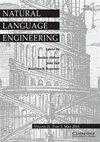Determining sentiment views of verbal multiword expressions using linguistic features
IF 1.9
3区 计算机科学
Q3 COMPUTER SCIENCE, ARTIFICIAL INTELLIGENCE
引用次数: 0
Abstract
We examine the binary classification of sentiment views for verbal multiword expressions (MWEs). Sentiment views denote the perspective of the holder of some opinion. We distinguish between MWEs conveying the view of the speaker of the utterance (e.g., in “The company reinvented the wheel” the holder is the implicit speaker who criticizes the company for creating something already existing) and MWEs conveying the view of explicit entities participating in an opinion event (e.g., in “Peter threw in the towel” the holder is Peter having given up something). The task has so far been examined on unigram opinion words. Since many features found effective for unigrams are not usable for MWEs, we propose novel ones taking into account the internal structure of MWEs, a unigram sentiment-view lexicon and various information from Wiktionary. We also examine distributional methods and show that the corpus on which a representation is induced has a notable impact on the classification. We perform an extrinsic evaluation in the task of opinion holder extraction and show that the learnt knowledge also improves a state-of-the-art classifier trained on BERT. Sentiment-view classification is typically framed as a task in which only little labeled training data are available. As in the case of unigrams, we show that for MWEs a feature-based approach beats state-of-the-art generic methods.利用语言特征确定多词言语表达的情感观
我们研究了言语多词表达情感观的二元分类。情绪观点表示持有某种观点的人的观点。我们区分传达话语说话者观点的MWE(例如,在“公司重新发明了轮子”中,持有者是批评公司创造了已经存在的东西的隐含说话者)和传达参与意见事件的明确实体观点的MWEs(例如,“Peter认输了”持有者是彼得放弃了什么)。到目前为止,这项任务已经在unigram意见词上进行了研究。由于许多对unigram有效的特征对MWE不可用,我们提出了新的特征,考虑到MWE的内部结构、unigram情感视图词典和Wiktionary的各种信息。我们还研究了分布方法,并表明在其上诱导表示的语料库对分类有显著影响。我们在意见持有者提取任务中进行了外部评估,并表明所学习的知识也改进了在BERT上训练的最先进的分类器。情绪视图分类通常被定义为一项任务,其中只有很少的标记训练数据可用。与unigram的情况一样,我们表明,对于MWE,基于特征的方法胜过最先进的通用方法。
本文章由计算机程序翻译,如有差异,请以英文原文为准。
求助全文
约1分钟内获得全文
求助全文
来源期刊

Natural Language Engineering
COMPUTER SCIENCE, ARTIFICIAL INTELLIGENCE-
CiteScore
5.90
自引率
12.00%
发文量
60
审稿时长
>12 weeks
期刊介绍:
Natural Language Engineering meets the needs of professionals and researchers working in all areas of computerised language processing, whether from the perspective of theoretical or descriptive linguistics, lexicology, computer science or engineering. Its aim is to bridge the gap between traditional computational linguistics research and the implementation of practical applications with potential real-world use. As well as publishing research articles on a broad range of topics - from text analysis, machine translation, information retrieval and speech analysis and generation to integrated systems and multi modal interfaces - it also publishes special issues on specific areas and technologies within these topics, an industry watch column and book reviews.
 求助内容:
求助内容: 应助结果提醒方式:
应助结果提醒方式:


